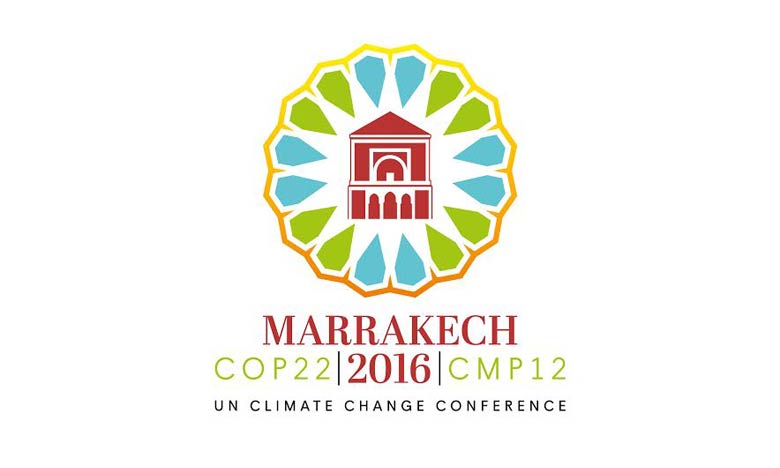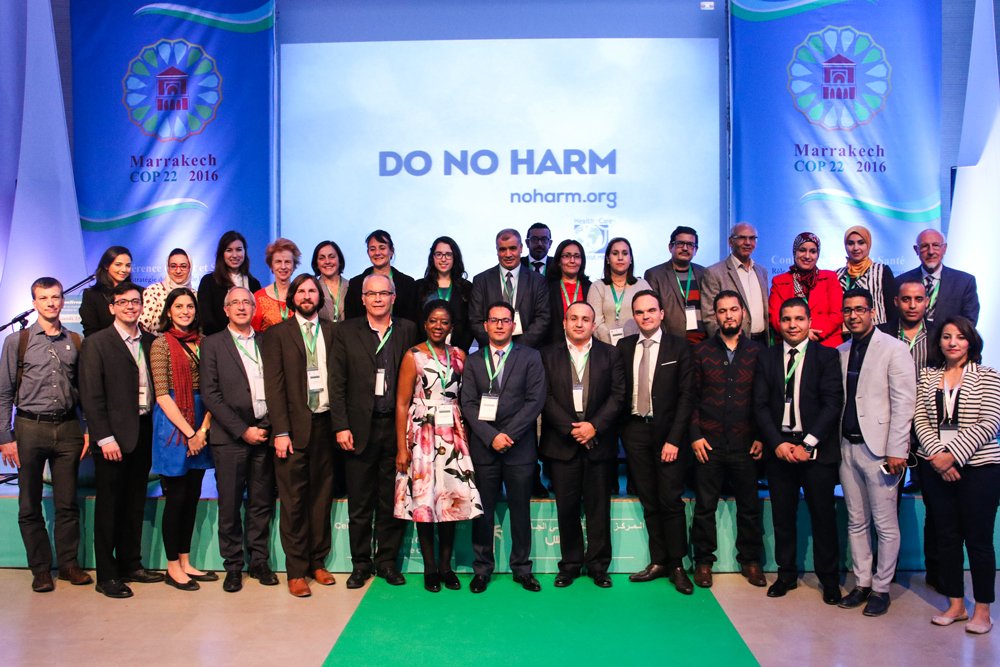COP22 | Spotlight on Climate and Health as Officials Map out Implementation of Paris Agreement
 Over the last two weeks Marrakech, Morocco played host to the 22nd Conference of the Parties (COP) on Climate Change. With the Paris Agreement coming into force just weeks before the event began, COP22 focused on bringing the world together to develop strategies and craft a blueprint for implementing the Agreement at national and global levels.
Over the last two weeks Marrakech, Morocco played host to the 22nd Conference of the Parties (COP) on Climate Change. With the Paris Agreement coming into force just weeks before the event began, COP22 focused on bringing the world together to develop strategies and craft a blueprint for implementing the Agreement at national and global levels.
While COP22 did not produce the headlines that Paris did, it is an integral part of a multi-year process to achieve the objectives of the Paris Agreement and marshal the forces of the global community to address climate change. As a representative from the World Meteorological Organization put it during the conference, “You can ignore climate change, but it won’t ignore you.” The message emanating from Marrakech is clear: the world must take real and immediate action now.
 Amidst the negotiations and myriad events throughout COP22, the climate and health connection continued its rise into the mainstream as a key driver for action. Seven events covering different aspects of the climate and health issue from air pollution, to migration, to solutions took place over the two weeks of the COP event.
Amidst the negotiations and myriad events throughout COP22, the climate and health connection continued its rise into the mainstream as a key driver for action. Seven events covering different aspects of the climate and health issue from air pollution, to migration, to solutions took place over the two weeks of the COP event.
The following are highlights from a few events showcasing how the health sector used COP22 as a platform to highlight climate and health issues and help build a community to address them.
- On November 11th, the WHO, the French Ambassador for Climate Change, and the Minister Delegate in charge of Environment of Morocco organized hosted held Health Action Day. The event focused on showcasing the innovative programs already being implemented to address and mitigate the health impacts of climate change. Health Care Without Harm presented the 2020 Health Care Climate Challenge and our work to engage and unite the global health sector to develop low carbon health care and act as a leading voice to protect the health of the planet. (Read full article on the event)
- On November 14, Health Care Without Harm and Global Green and Healthy Hospitals (GGHH) member, the Mohammed VI University Hospital hosted the Climate and Health Care Conference. The event brought together health sector leaders from around Morocco, Europe, and beyond to share strategies for the health sector to mitigate its own climate impacts, develop low carbon models of care, and use their voice, both individually and collectively, to advocate for policies to address climate change and public health. (Read full article on the event).
- Monday the 14th also saw the launch of The Lancet Countdown: tracking progress on health and climate change at COP22. This new Lancet Commission project is an international, multidisciplinary research collaboration between academic institutions and practitioners across the world. The Lancet Countdown aims to track and report annually on the health impacts of climate hazards; health resilience and adaptation; health co-benefits of climate change mitigation; economics and finance; and political and broader engagement.
- On Tuesday the 15th, the Ministry of Environment and the Ministry of Health of Morocco, in partnership with the World Health Organization and the UN Environment Programme, convened representatives from Ministries of Health and Environment from around the globe to sign a declaration on “Health Environment, and Climate Change.” This event and the declaration is an important step to both demonstrate the interest of nations around the world, from Botswana, to Canada, to the Philippines, Norway, and points in between in focusing on climate and health as well as the need for a global high-level alliance to drive these efforts.
Looming over the COP were the major political changes taking place in the US and the potential impacts they would have on the implementation of the goals set out in the Paris Agreement. While those concerns are very real, the dramatic shifts and changes in both the climate of the planet and the climate of global politics, underscored in Marrakech the call by governments and civil society for the world to stand and work together.
Such collaboration is necessary to scale up programs and drive the transformative, high impact change needed to achieve global climate goals. The globe is on a timeline that not just calls for this collaboration but requires it.
Video Gallery
Image Galleries
